Garage Floor Tiles vs. Epoxy: Pros, Cons, & Differences
-
Codee Chessher
- Last updated:
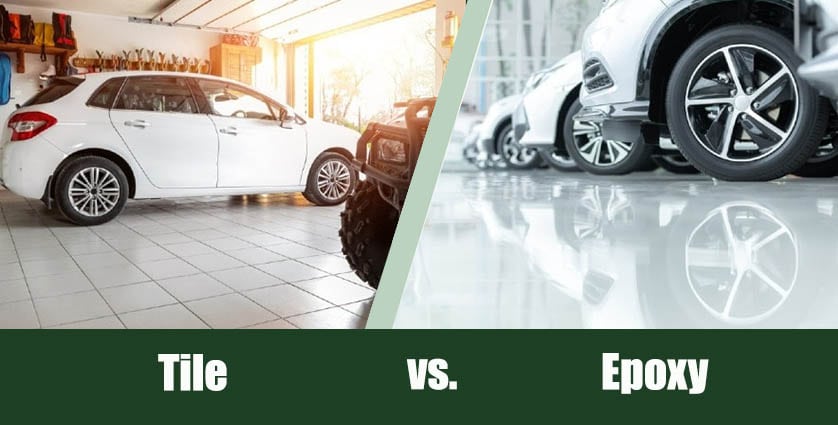
When you need to floor a garage, workshop, or other space, epoxy and garage floor tiles are two of the most popular options available. They provide a stylish, customizable, and durable floor on par with many other flooring options. However, it’s important to become familiar with the pros and cons of each and how durable they are. Let’s check out how garage floor tiles and epoxy floors vary and how to decide which is best for your floor.

Overview of Garage Floor Tiles
Garage floor tiles are interlocking tiles with a variety of colors and designs. The most popular type of garage tiles are the checkered ones seen in showroom garages, but there are many other types. There is hardwood, stone, tile, and even peel-and-stick tiles that can mimic the look of virtually any floor you could want.
Most garage floor tiles are made of PVC, which is durable and water resistant. However, vinyl and rubber tiles are better for automotive work because PVC will absorb oil. Rubber has great shock-absorbing properties that make it ideal for a home gym, while vinyl isn’t as durable but is much cheaper. Depending on what you want to use your garage for, you can customize the material and design of your tile to your heart’s content.
Vinyl is the most practical and cost-effective tile available, but rubber offers a longer lifespan and shock absorption. For a simple flooring solution, we’d recommend using vinyl tiles. If you want a long-lasting home gym or yoga studio, rubber would be a better bet. Peel-and-stick tiles are the cheapest solution but offer little durability.
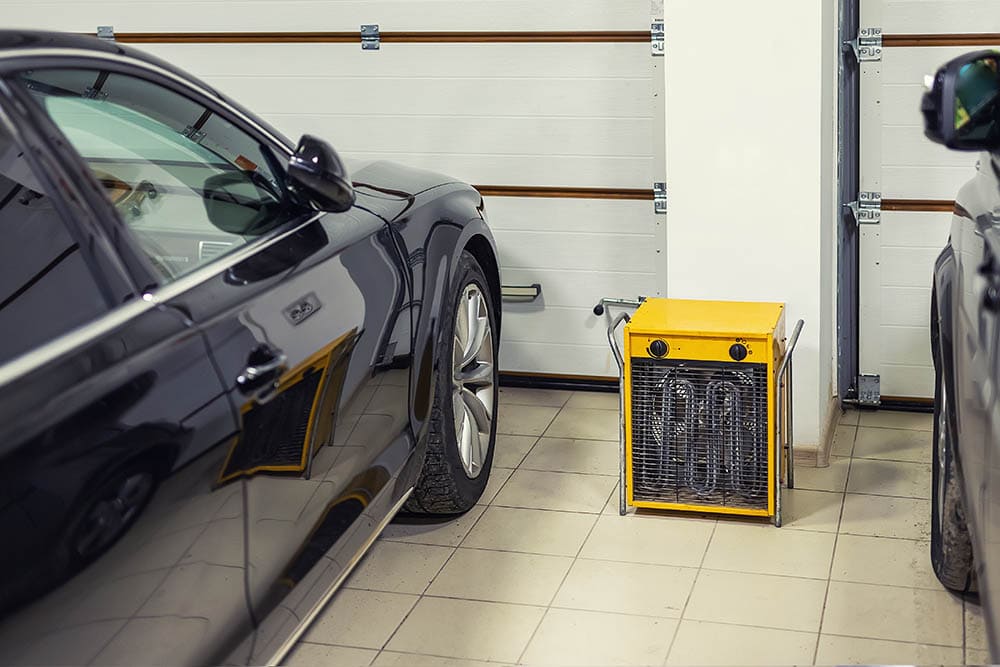
Cost
Garage floor tiles vary based on the material used. On average, you can expect vinyl floor tiles to cost $2–$3 per square foot. Rubber costs more at $3–$8 per square foot. Peel-and-stick tiles only cost about $1–$2 per square foot, while stone tiles will cost about the same as rubber at $4–$8 per square foot.
Durability
A well-installed rubber tile floor will last as long as 30 years, while a vinyl tile floor may only last 10–20 years on average. Any type of floor tile will be more durable than epoxy floors, though they may not be as chemically resistant. Tile also isn’t as resistant against liquid spills, like from oil or cleaners. Finally, tile can chip or break if heavy objects fall on it.
Installation
Garage floor tiles are typically interlocking and easy to put together, which makes installation easy. Many people opt to skip professional installation and do it themselves, which can save as much as $200 on labor costs. When a tile becomes damaged, it’s simple and easy to replace a single tile. By contrast, epoxy is difficult to fix.
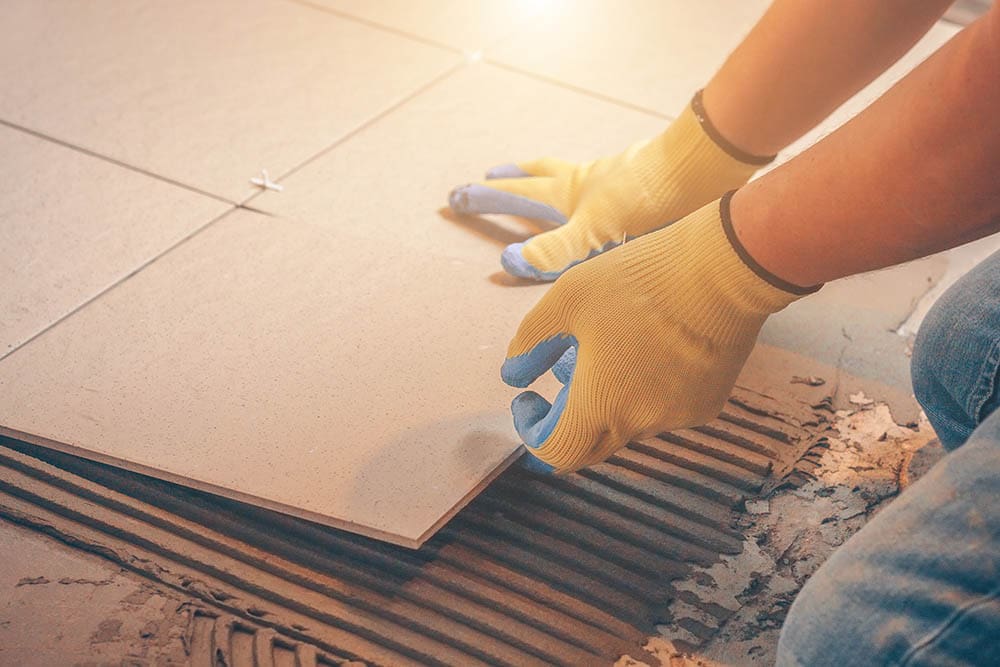
- Easy to install
- Comes in a variety of colors and styles
- Different materials have different properties and prices
- Easy to fix individual damaged tiles
- Requires minimal ground preparation
- Vary in price
- More difficult to clean than epoxy
- Not as resistant to chemicals, oil, or liquid messes

Overview of Epoxy
Epoxy is a clear resinous compound often used to glue objects together, but it can be used to floor garages and other spaces as well. The floor must be cleaned of any debris and dirt, then leveled and ground to a smooth finish. The first epoxy agent is then applied, and a second coat of hardener causes the epoxy to solidify into a glossy clear finish. Epoxies can also contain decorative colors and designs, making epoxy as customizable as tile or other flooring choices.
Epoxy is appealing as a floor because it’s resistant to dirt, dust, debris, and liquid stains. The most care you need to do for an epoxy floor is to sweep the floor and give it a good mopping every week or two. Epoxy is also known to hold large amounts of weight, so that makes it perfect for an automotive workshop floor.
Epoxies can help fill small cracks in flawed floors and are typically self-leveling. Small grippy chips can be mixed into the epoxy to make the floor more comfortable to walk on, and epoxy floors hold up well to lots of foot traffic. Over time they can chip in worn areas, but overall, they tend to stay undamaged longer than tile floors.
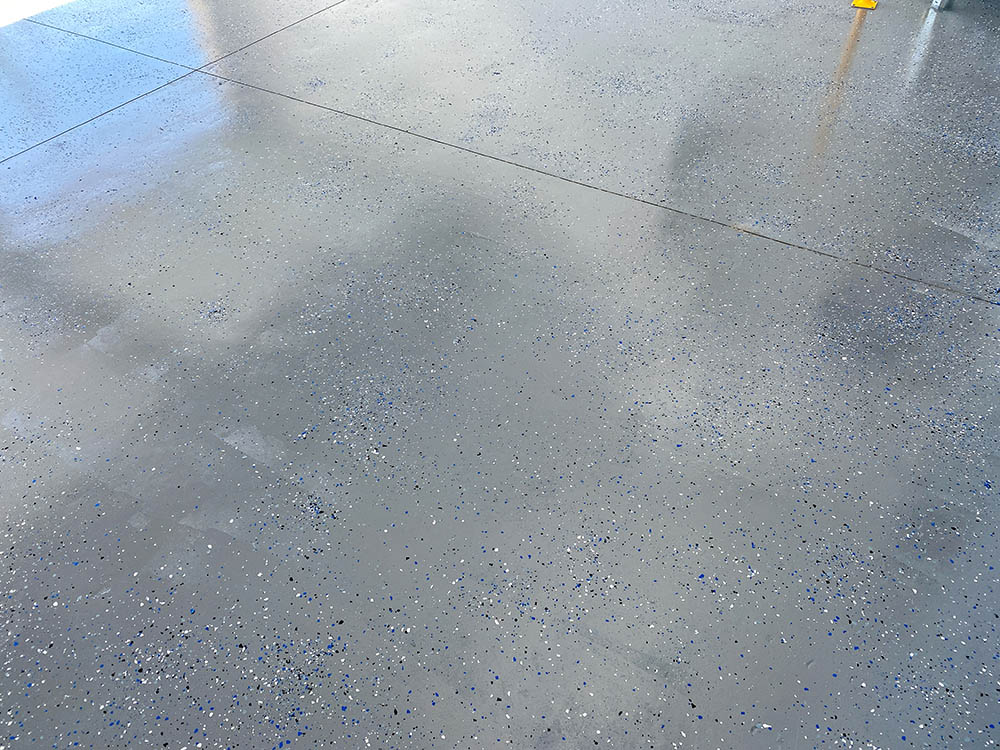
Cost
Epoxy floors can cost between $5–$8 per square foot for a basic clear finish, or higher-end colors or styles can run your bill up to as much as $13–$19 per square foot. Overall, epoxy is cheaper than some of the lower-end tiles out there. Unlike tiles, you can’t save on costs by self-installing.
Durability
Epoxy is durable and lasts 10–20 years with regular maintenance. Leaving small chips or cracks unattended can shorten this lifespan drastically, so it’s important to keep your epoxy floor in good shape by regularly cleaning it and having cracks repaired. Epoxy lasts about the same amount of time that tile does unless you spring for high-quality rubber.
Installation
Epoxy requires professional installation and can’t be done yourself without special equipment. Furthermore, your professionals will need to level and grind the floor to a clean finish before they can even start applying the epoxy. You can save a few bucks by preparing the floor yourself if you’re so inclined.
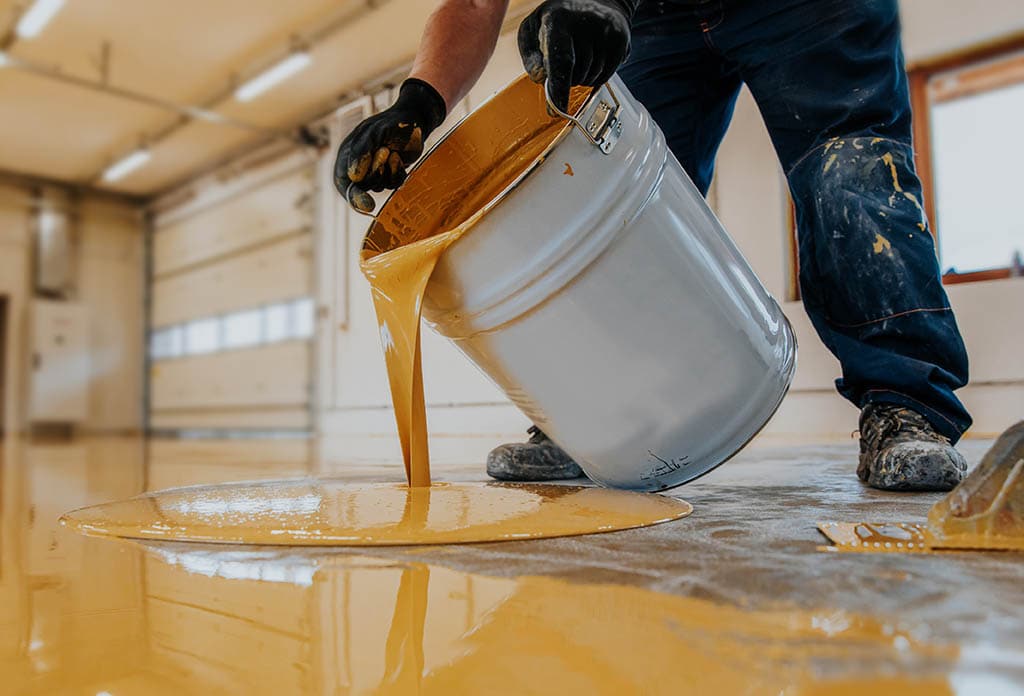
- Glossy attractive finish
- Wide variety of colors and styles
- Can add chips for grip
- Easy to clean
- Lasts up to 20 years with good care
- Requires professional installation
- More expensive to repair than tiles
- Calls for more prep work

Conclusion
Both tile and epoxy are great choices for a garage, but what you choose depends on your needs and your budget. Budget tile can be bought for cheap and laid yourself, but higher quality tile will rival epoxy in price. Tiles are a bit harder to clean but much easier to repair, while the inverse is true for epoxy.
Featured Image Credit: (L) Gorloff-KV, Shutterstock | (R) Tong stocker, Shutterstock
Contents